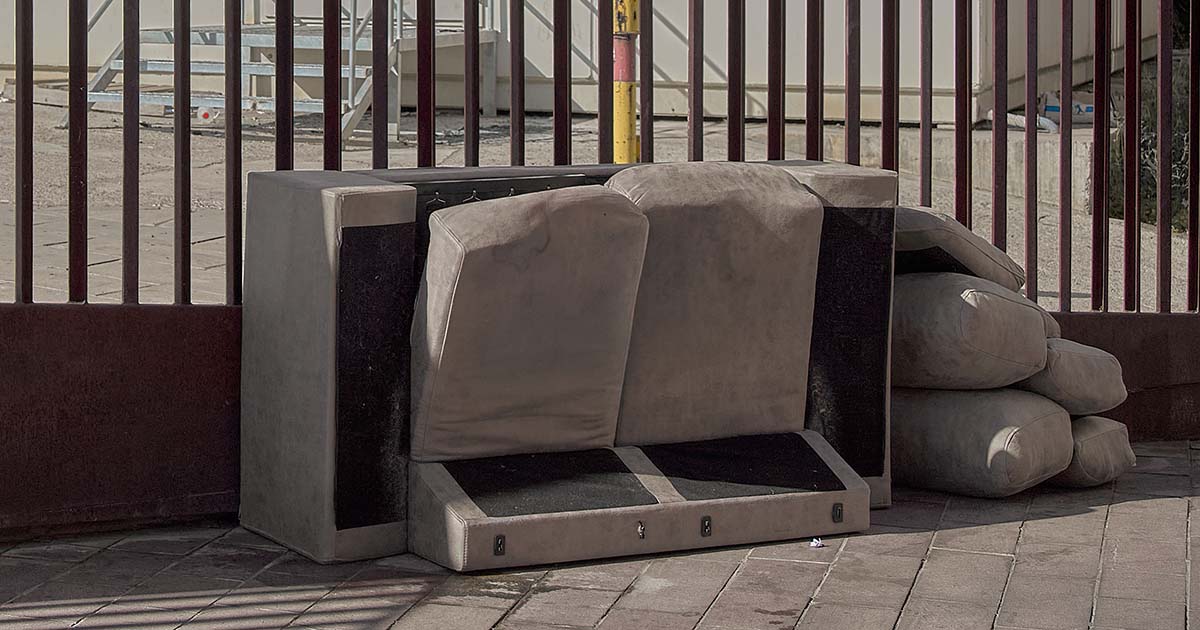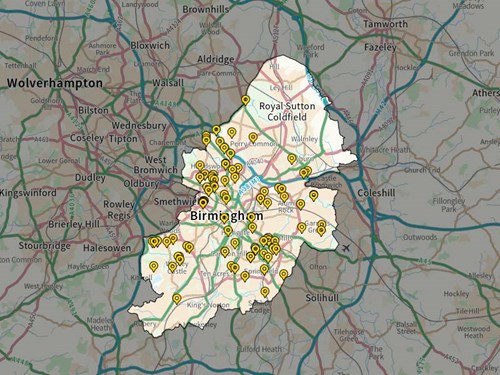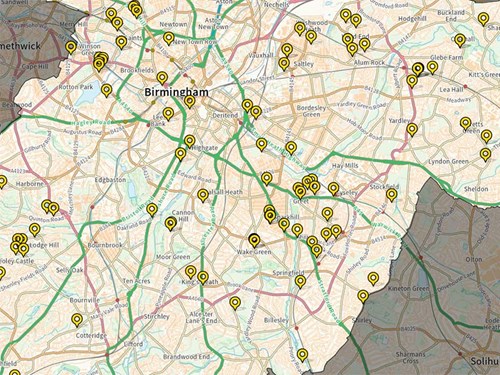Birmingham Fly-Tipping Statistics, Facts & Figures 2025

From dumped furniture in backstreets to piles of bin bags beside communal containers, fly-tipping remains a persistent issue in Birmingham. As the largest city in the West Midlands — and the UK’s second largest overall — Birmingham continues to face challenges around illegal waste disposal.
In this article, we explore the city’s most recent fly-tipping statistics, the areas most affected, the types of waste being dumped, and how both the council and residents are working to tackle the problem.
How many fly-tipping incidents are reported in Birmingham each year?
According to the latest government data on fly-tipping incident reports in Birmingham:
- In the year ending March 2024, there were 17,823 reports of fly-tipping in Birmingham.
- That’s 15 incidents per 1,000 people, which is lower than the national average of 20 fly-tipping incidents per 1,000 people.
- From the year ending March 2023 to the year ending March 2024, the number of fly-tipping incidents rose by 13% (up from 15,807 incidents).
- Over the past decade, from 2014 to 2024, there has been an overall upward trend in fly-tipping incidents in Birmingham, with a dip in the year ending March 2023 followed by an increase the following year.
The graph below shows how fly-tipping in Birmingham has changed over the last ten years:
Where does fly-tipping occur most in Birmingham?
It’s clear that illegal waste disposal is an ongoing problem in Birmingham. But where is it happening most often? Recent data shows that:
- In the year ending March 2024, 97% of all fly-tipping incidents in Birmingham occurred on public highways, totalling 17,358 reports.
- The next most affected areas were commercial and industrial land, with 164 incidents, and council-owned spaces such as parks and play areas, with 154 incidents — each making up around 1% of the total.
- Smaller numbers were recorded on footpaths and bridleways (87 incidents), private residential land (40), back alleyways (18), and agricultural land (2).
- As of August 1st 2025, FixMyStreet data shows high numbers of fly-tipping cases in eastern areas of Birmingham, including Little Bromwich, Tyseley and New Shires Industrial Estate.

Map showing 27,348 active fly-tipping incidents in Birmingham (FixMyStreet, 1st August 2025)

Map showing active fly-tipping incidents concentrated in areas east of Birmingham Centre
What types of waste are most commonly fly-tipped in Birmingham?
Now that we know where fly-tipping is happening, here’s a look at what type of waste is being illegally dumped in Birmingham. According to government figures:
- Miscellaneous household waste — including items from house or shed clearances, old furniture, carpets, and small-scale DIY debris — was the most commonly fly-tipped material in Birmingham, with 8,731 incidents reported in the year ending March 2024.
- The second most common waste type was household rubbish in black bags, accounting for 4,732 reported incidents.
- This was followed by animal carcasses (1,411 incidents), white goods such as fridges and washing machines (1,140), and construction-related waste, which was involved in 657 cases.
How do Birmingham’s fly-tipping statistics compare to other areas in the West Midlands?
The West Midlands is a region of contrasts – home to both densely populated urban centres like Birmingham and Coventry, and quieter, rural areas like the Malvern and Shropshire Hills. So, how do Birmingham’s fly-tipping figures compare with other local authorities in the region? The data shows:
- In the year ending March 2024, Birmingham recorded the highest number of fly-tipping incidents in the West Midlands, with 17,823 reports.
- This was followed by Sandwell — a borough made up of several towns bordering Birmingham to the northeast — which reported 12,407 incidents.
- However, when looking at fly-tipping rates relative to population, Sandwell had the highest in the region, with 36 incidents per 1,000 people, followed by Telford & Wrekin (31 per 1,000) and Redditch (27 per 1,000).
The table below shows West Midlands local authorities with the highest number of fly-tipping incidents in the year ending March 2024:
| Rank | Local Authority | Total Incidents |
|---|---|---|
| 1. | Birmingham | 17,823 |
| 1. | Birmingham | 17,823 |
| 2. | Sandwell | 12,407 |
| 3. | Coventry | 5,883 |
| 4. | Telford & Wrekin | 5,860 |
| 5. | Stoke-on-Trent | 5,366 |
| 6. | Walsall | 4,588 |
| 7. | Solihull | 3,622 |
| 8. | Warwick | 2,930 |
| 9. | Dudley | 2,898 |
| 10. | Wolverhampton | 2,714 |
What legal actions are taken against fly-tipping in Birmingham?
Like the rest of England, fly-tipping is treated as a serious offence in Birmingham. Offenders can face fines of up to £50,000 and imprisonment for up to five years if caught in the act.
Those using vehicles to transport and dump illegal waste risk having their vans or cars seized by Birmingham City Council, in addition to potential prison sentences.
Last year, government data reported that:
- Only 20% of fly-tipping reports in Birmingham led to formal legal actions, such as notices and fines, totalling 3,615 actions.
- The majority of these were investigations (2,188), followed by duty of care inspections (712) and statutory notices (459).
- Just 114 fixed penalty notices were issued specifically for fly-tipping offences in Birmingham.
- Of all the councils in the West Midlands, Birmingham issued the fourth-highest number of fines for fly-tipping, behind Stoke-on-Trent (510), Telford & Wrekin (201), and Coventry (136).
How Birmingham is working to curb fly-tipping
In response to rising fly-tipping across the city, Birmingham City Council has stepped up efforts to crack down on illegal dumping. This includes a mix of preventative measures and legal enforcement, often supported by local police.
One key initiative is the installation of AI-enabled CCTV cameras in major fly-tipping hotspots across the city. For instance, in 2023, these cameras were placed in areas such as Aston, Erdington, and North Edgbaston, which have had high reports of fly-tipping. The council also urges residents to report incidents through its official website.
What can Birmingham residents do to reduce fly-tipping?
While the city provides essential waste disposal services, residents also play an important role in keeping Birmingham clean, especially during times when collections may be delayed or services temporarily reduced.
But for many, that’s easier said than done. Not everyone has the time, transport, or resources to take bulky items or excess rubbish to a local tip. That’s where HIPPO can help.
Whether you’re clearing out furniture, white goods, garden waste or DIY debris, HIPPO makes responsible disposal simple. Our Birmingham waste disposal services are fast, reliable and fully compliant with UK waste regulations – so you can clear your space without adding to the city’s fly-tipping problem.

